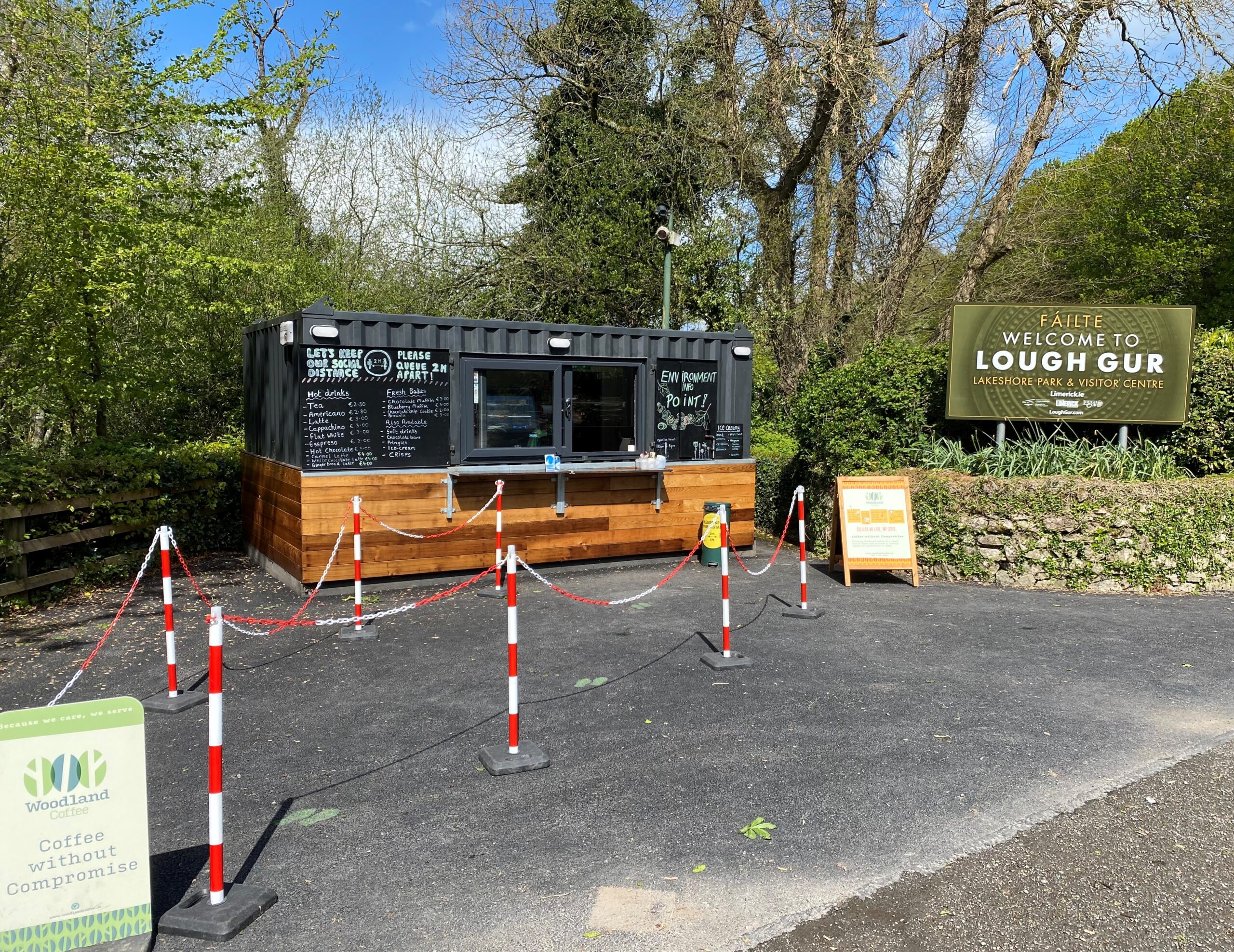I feel really strongly about coffee AND waste coffee! Most people appreciate the benefit of composting organic waste and the divisive impact it has if it goes into landfill; 25 times more Co2 emissions than if you compost it, yikes!!!.
Lough Gur’s general manager, Kate Harrold, is similarly motivated in dealing with the waste generated from their coffee kiosk. Lough Gur is a proposed national heritage site located in Co Limerick near the village of Bruff and has recently been accredited as a ‘Leave No Trace’ Training Centre. It is an area of outstanding natural beauty and is historically significant for the past 6000 years! Kate manages this truly unique experience at Lough Gur and is always seeking ways to efficiently deal with compostable waste in a manner that lowers its environmental impact; the result is that we have installed a hot bin composter behind the Coffee Kiosk in Lough Gur to break down and compost the organic and compostable waste generated from the activities.
The hot bin is a great piece of equipment, firstly there is no technology involved, just science. There is no electricity involved just internally generated heat that is controlled by the mix of materials being placed in the bin and the amount of air allowed in maintaining the fermenting process.
This is how the science works
Decomposition occurs most rapidly when the hot bin reaches a temperature of between 40-60°C, which lasts for several weeks or months (known as the thermophilic phase). At this temperature thermosensitive pathogens are destroyed such as fly larvae, and weed seeds but compost invertebrates such as worms survive this stage by moving to the periphery of the pile or becoming dormant. This stage allows for aerobic composting that allows most species of microorganisms to continue the composting process but cannot survive at temperatures above 60-65°C, if the bin gets too hot it (above 60-65°C) it will be necessary to reduce the temperature by aerating the system by leaving the lid open. If the temperature cools below 40°C, turning the pile usually will result in a new temperature peak because of the replenished oxygen supply and the exposure of organic matter not yet thoroughly decomposed.
After the thermophilic phase, the compost temperature drops and is not restored by turning or mixing. At this point, decomposition is taken over by mesophilic microbes through a long process of “curing”. Although the compost temperature is close to ambient during the curing phase, chemical reactions continue to occur that make the remaining organic matter more stable and suitable for use with plants.
A little more work than throwing waste into the landfill bin but probably one of the easiest and most cost effective ways of protecting our environment. One small change, will you make a difference with us?
